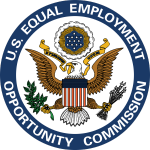 Imagine sending a note to your staffing agency that says you’re “looking for young energetic guys.” Or one that warns your agency recruiter “a person in their 40s or 50s would not be a cultural fit.” Or that you’re “looking for a fresh college grad.”
Imagine sending a note to your staffing agency that says you’re “looking for young energetic guys.” Or one that warns your agency recruiter “a person in their 40s or 50s would not be a cultural fit.” Or that you’re “looking for a fresh college grad.”
Those are just three examples of what the EEOC claims are hundreds of discriminatory job requests it has seen in a data dump of Aerotek’s client database since 2009. Now it wants the national staffing firm, part of Allegis Group, the nation’s largest staffing company, to give it the names and other contact information of those clients and its candidates, too.
Aerotek has been fighting the request for months. Two weeks ago, it lost an appeal to the federal appeals court in Chicago to keep it from turning that information over while it pursues other legal avenues. Without comment, a three-judge appeals panel denied the request for a stay of the EEOC’s subpoena. Aerotek has since asked the court to reconsider.
It’s a case with serious implications for both staffing firms and clients.
An analysis of the investigation and related legal action by employment attorneys with Jackson Lewis said that regardless of the eventual outcome, it’s a reminder that employers are still subject to discrimination laws even though they engage a staffing firm for workers. In addition, write attorneys Paul Patten and Jennifer Seda, “The EEOC perceives fewer investigative constraints when conducting an ADEA investigation than under Title VII and the ADA.”
As important as that is, the most telling advice from Patten and Seda is this: “Employers who use staffing firms are well-advised to bring company HR professionals into this process to the extent HR is not already involved.”
While no recruiting or HR professional worthy of the title would ever send a job order or an email hinting at anything like what the EEOC says it found, hiring managers are less knowledgeable of the laws and some may even be reckless.
It’s not uncommon for department managers to deal directly with staffing firms when they need temp help. One of the biggest challenges large employers have in getting a handle on their agency staffing spend is that it isn’t centralized; individual purchasing agents and not HR may be the ones responsible for staffing procurement.
In the case of Aerotek, the EEOC has made no charges; it is only investigating at this point. But it’s clear the investigators suspect there’s more than smoke.
The investigation dates back to August 2013, when the U.S. Equal Employment Opportunity Commission began looking into Aerotek’s recruitment and placement practices. Then, Aerotek voluntarily provided the EEOC with data related to placements and job requisitions, but removed client and candidate identification. In turning over the records, Aerotek acknowledged its own review “unearthed a few isolated incidents of employees acting in a manner inconsistent with the Company’s policies and practices with respect to client referrals, and requested the EEOC’s cooperation to look into those situations and devise appropriate remedies.”
After looking through the records, the EEOC claimed it found hundreds of discriminatory job orders, and in support of a subpoena for names and adderess, cited the examples at the beginning of this post.
Federal District Court Judge Milton Shadur issued the subpoena in February, and reaffirmed it a month later, ruling against Aerotek. In doing so, he commented, according to the EEOC account, “[I]t would seem to me that having been alerted to the fact that some of these clients engage in activities that on their face are age discriminatory, that Aerotek might have a responsibility for doing some better policing of its own clients before it takes them on in that regard.”
Aerotek did not respond to an email requesting comment. The EEOC declined to comment.